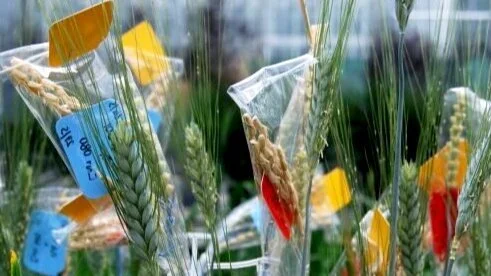Is climate smart and resilient agriculture possible without adapted wheat varieties?
Reference: Innovationnewsnetwork, leading way in crop innovation.
The short answer to this question is “no”.
Many farmers, scientists and breeders believe that breeding and trait development innovations in wheat will be essential to improve crop yields, boosting resiliency against pests, disease and weather extremes. Besides, adapted varieties in combination with improved regenerative practices, can further reduce the impact of agriculture on climate change.
Wheat is a staple food contributing 20% calories to world’s population, with a total global harvest area of 2.1 million km2 which is about the size of Mexico’s or India’s total land area. A uniform climate warming scenario of +1 °C predicts an average wheat yield loss of 8.5%. Experts predict that frequent droughts will further reduce wheat yields by another 12%. Moreover, the war between Russia and Ukraine has affected exports from those major exporting countries, causing wheat prices to skyrocket and threatening food security.
The need for climate smart and resilient wheat varieties and traits has perhaps never been greater. Taking this message to heart, over the last couple months, several promising applications have been approved and brought to the farmer’s gate.
Last week, Brazil has approved the cultivation and sale of drought tolerant HB4 wheat, following other countries such as Colombia, Argentina, Nigeria, US, Australia and New Zealand. Breeders at Bioceres modified elite wheat varieties by introducing the HB4 gene from sunflower. HB4 is a transcription factor that regulates a delay in senescence and by doing so, improves tolerance to drought stress. During trials, the company reported an average 43% yield improvement in specific targeted dry environments.
Mid-February, Europe’s first field trials of low-acrylamide improved wheat varieties, reported a significant reduction of the carcinogenic acrylamide. Researchers at Rothamsted Research used gene-editing technologies to reduce the expression of asparagine synthetase and to lower the formation of asparagine. Asparagine is an amino acid that, when the wheat is cooked or baked, can be converted to acrylamide, a compound known to cause cancer in animals. In the modified wheat varieties, the levels of asparagine, were about 50% lower than the control.
Scientists from the International Maize and Wheat Improvement Center, called CIMMYT, last summer, presented short-, medium- and long-term steps to respond to the global food crisis and to contribute to a more resilient agri-food system. Through the Drought Wheat Improvement Consortium, they created a network that coordinates global wheat research to support wheat variety development, adapted to heat and drought stress. The consortium delivers new technologies to wheat breeders worldwide, by harnessing the latest technologies in genetics, breeding and trait development.
Many other companies are working on wheat breeding and trait development, to help keep wheat, and the farmers who grow it, ahead of a changing climate. Inari is committed to enhance wheat’s long-term viability through genome editing and seed companies such as KWS, BASF and Syngenta are investing substantially to develop resilient wheat varieties.
Although we see wheat research moving forward fast pace, scientists, breeders and agricultural leaders need to stay focused and take a pragmatic approach to wheat improvement. There is absolutely no room for “innovation for the sake of innovation”. Farmers don’t have the time to experiment with moonshot ideas, they need practical solutions that create tangible impacts for their wheat crops.


